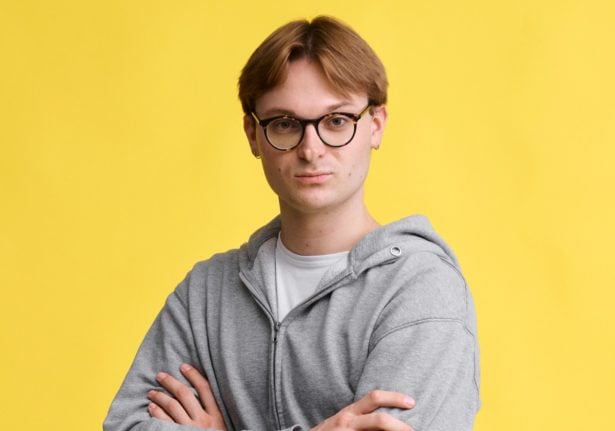When Neuenfeldt was born at a hospital in Copenhagen, neither his German father nor his Austrian mother yet had permanent residency or citizenship, so he didn’t get citizenship either.n
But this was something he was barely conscious of as he grew up in Frederiksberg, northern Zealand, studying and working part time at Føtex supermarket.
His lack of Danish citizenship only became an issue when he finished high school and got a permanent job in the public sector, and realised he needed a long list of documents.
“My boss asked me to hand in a copy of my residence permit and my birth certificate, along with a few other documents, because I wasn’t a Danish citizen, and then at that point, I realised that I didn’t even have the permanent residence permit and would have trouble acquiring the other documents.”
So despite living his entire life in the country, Neuenfeldt found himself in the position of an immigrant, applying for a permanent residence permit at the foreign ministry and collecting his birth certificate and certificate of schooling.
READ ALSO:
- Why young people born in Denmark can be denied citizenship
- I’m doing everything right to get Danish citizenship and it’s not enough
- Danish-born non-citizens call for change to country’s citizenship rules
“Luckily, I had a boss who was patient with me and allowed me to wait out this period and then I eventually got my documents and was able to keep my job,” he remembers.
But the experience made him more determined than ever to join the campaign against Denmark’s draconian citizenship laws.
“I’ve lived in Denmark my whole life. I’ve done all the same things other Danish teenagers and young adults do, and I don’t in any way feel German,” he said. I feel Danish and it’s the only nationality I can really identify with.”
Being one of the estimated 19,000 young people born and brought up in Denmark without having Danish citizenship has also left him with the same uncomfortable choice: go straight into work after turning 18 and get citizenship within four years, or study at university and perhaps have to wait ten.
“I thought about it for a long time, and ultimately came to the conclusion that I didn’t want to have to put my life on hold just because of these rules,” he told The Local, “and the consequences are that I have to wait up to 10 years to achieve Danish citizenship because I have to finish my education first, and then afterwards, I have to work for three and a half years full time to meet the fulfilment to even apply.”
This autumn, he will start a course in public health studies at Copenhagen University.
To get a student grant to study, he had to jump a lot of additional hurdles, proving that he had done his elementary schooling in Denmark and that he had lived in the country without any breaks for his entire life. He has also been unable to go travelling for long periods like many of his schoolfriends have done.
“If I leave the country for more than six months, then I’m at risk of losing my permanent residence permit, and a lot of my friends have been travelling for way longer than six months, and that, of course, is something I couldn’t partake in.”
His German father, a researcher at the National Institute of Aquatic Resources at the Danish Technical University, and his Austrian mother, who is a teacher, have yet to even apply for Danish citizenship, despite spending more than 20 years in the country. His older brother, meanwhile, is in a similar situation to the one he is in.
“My parents have decided to keep their respective citizenships, the German and Austrian one, because it’s very important to them to have something that ties them to their home country,” he said. “My father has recently started to think about whether he would like to apply for Danish citizenship, but I think he feels the system and the politics around it are so unjust that he won’t apply in the near future.”
Recently, Neuenfeldt has become active in the citizenship campaign run by Mellemfolkeligt Samvirke, Denmark’s arm of Action Aid, but he doesn’t expect any political progress will come in time to help his own case.
“There are a few political parties who want to make it easier for people like me to acquire Danish citizenship, but there are also a lot against it, and they are currently the majority, so the outlook right now isn’t too good,” he said. “I think it will be a long time for there will be any positive results.”
But this doesn’t mean he doesn’t see any point in campaigning. He plans to attend an event at this summer’s Folkemøde political festival on Bornholm and attends regular events in Copenhagen.
“I’ve decided I can’t just sit around and be pessimistic and complain, because I am quite pessimistic about the politics regarding foreign people in Denmark, but I don’t feel it’s just for to have this opinion when I’m not doing anything to try and fight my cause,” he said. “I am not sure how the situation will develop politically, but I still have to fight this fight because it’s very close to my heart.”


 Please whitelist us to continue reading.
Please whitelist us to continue reading.
Member comments